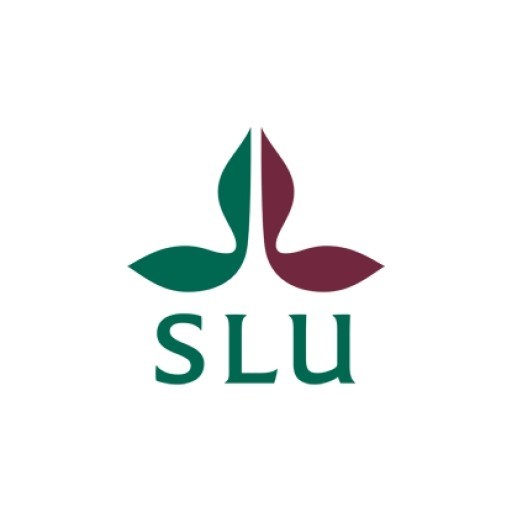Photos of university / #slu.student
The Master’s Programme in Environmental Economics and Management at the Swedish University of Agricultural Sciences (SLU) offers students a comprehensive education designed to address the complex challenges of sustainable development and environmental governance. This programme prepares students with essential skills in economic analysis, policy assessment, and management strategies aimed at promoting environmental sustainability in various sectors, including agriculture, forestry, conservation, and natural resource management. Throughout the course of study, students explore the principles of environmental economics, including valuation of ecosystem services, cost-benefit analysis, and market mechanisms, enabling them to develop innovative solutions for environmental problems. The curriculum encompasses a blend of theoretical frameworks and practical applications, equipping students to analyze environmental issues from an economic perspective and to formulate effective policies and management strategies. Students engage in case studies, project work, and field excursions that strengthen their ability to apply concepts in real-world contexts. Collaboration with industry professionals, government agencies, and research institutions is a key component of the programme, providing valuable networking opportunities and practical insights. Graduates of this programme are well-prepared for roles in environmental consultancy, governmental agencies, international organizations, and private sector companies committed to sustainable development. They will be capable of conducting rigorous economic analyses of environmental projects, developing policy recommendations, and managing natural resources responsibly. The programme emphasizes sustainable management practices, environmental legislation, and the socio-economic aspects of environmental issues, fostering a holistic understanding of the interactions between human activities and natural ecosystems. With an international perspective and a multidisciplinary approach, the Master’s Programme in Environmental Economics and Management uniquely positions students to contribute to solving some of the most pressing environmental challenges facing modern society.
The Master’s Programme in Environmental Economics and Management at the Swedish University of Agricultural Sciences offers students an in-depth understanding of the economic and managerial aspects of environmental issues. The program is designed to equip students with the analytical tools and practical skills necessary to address complex environmental challenges through sustainable economic and policy solutions. Over the course of the programme, students will explore key topics including environmental valuation, natural resource management, environmental policy analysis, and sustainable development strategies. The curriculum combines foundational courses in economics with specialized modules focusing on the environmental sector, ensuring graduates are well-prepared to work in policy, consultancy, research, or management roles related to environmental conservation and sustainable resource use.
Students will gain knowledge about the economic causes and consequences of environmental issues, as well as methods to assess environmental impacts and evaluate the effectiveness of different policies. The programme emphasizes an interdisciplinary approach, integrating perspectives from economics, ecology, and social sciences to provide a comprehensive understanding of environmental challenges. Practical skills are also prioritized, with opportunities for students to engage in case studies, project work, and analytical assignments that simulate real-world decision-making processes.
The program prepares students for careers in government agencies, non-governmental organizations, consulting firms, and international institutions working toward sustainable development goals. Furthermore, the programme offers opportunities for international exchanges and collaboration, exposing students to global environmental policies and practices. Graduates will be capable of designing and implementing economic strategies to promote environmental sustainability, contributing actively to the development of environmentally sound policies and management practices. Overall, the Master’s in Environmental Economics and Management aims to foster professionals who can effectively bridge economic analysis and environmental stewardship to achieve a sustainable future.
Program requirements for the Master's Programme in Environmental Economics and Management at the Swedish University of Agricultural Sciences encompass a comprehensive set of prerequisites designed to ensure applicants possess the necessary academic background and skills. Prospective students are generally expected to hold a Bachelor's degree or equivalent in fields such as economics, environmental sciences, agriculture, or related disciplines that provide a solid foundation in economic analysis, quantitative methods, and environmental issues. The admission process emphasizes proficiency in English, requiring applicants to demonstrate language skills through standardized tests like the TOEFL or IELTS, with minimum score requirements stipulated by the university. Additionally, applicants are often required to submit statements of purpose outlining their motivation for pursuing the programme, relevant work or research experience, and how their background aligns with the programme’s objectives.
The curriculum begins with core courses covering economic theory, environmental policy, resource management, and sustainable development, ensuring students acquire fundamental knowledge. Following this, students undertake specialized courses in economic modeling, environmental valuation, and management practices relevant to environmental challenges. Practical components include case studies, seminars, and potential internships, fostering applied understanding. To graduate, students must complete a certain number of credits through coursework and a thesis project, demonstrating their capability to conduct independent research pertinent to environmental economic management.
In terms of academic prerequisites, applicants should have completed coursework in economics, mathematics, statistics, or related subjects, with some programs favoring applicants with background knowledge in environmental science or policy. The selection process evaluates academic transcript quality, relevant experience, and language proficiency. The programme aims to prepare graduates for careers in consultancy, governmental agencies, international organizations, and research institutions focused on sustainable environmental management and policy development. Overall, meeting these requirements ensures that students are well-prepared to undertake advanced studies and contribute effectively to the field.
Financing for the Master's programme in Environmental Economics and Management at the Swedish University of Agricultural Sciences is primarily based on a combination of scholarships, government funding, and student self-financing options. The university offers a range of scholarships specifically targeted at international students, which can significantly reduce or cover tuition fees. These scholarships are often awarded based on academic merit, motivation, and sometimes financial need, and applicants are encouraged to apply early to maximize their chances of receiving financial aid. In addition to university-sponsored scholarships, students may be eligible for external funding sources, including national and international grants, or sponsorships from organizations aligned with environmental and economic development.
Tuition fees for non-EU/EEA students are applicable and vary depending on the specific program. For the Environmental Economics and Management programme, the fees are set annually and must be paid in accordance with the university’s fee payment schedule. EU/EEA students and Swedish citizens typically do not pay tuition fees; however, they are responsible for their living costs, which include accommodation, food, insurance, books, and personal expenses. The university provides guidance and support during the application process to help students identify suitable funding options and understand the total costs involved in studying.
Students are also encouraged to explore national student aid systems, such as the Swedish State Financial Aid (CSN), which can provide loans and grants to residents of Sweden for living expenses during their studies. For international students, part-time employment opportunities in and around the campus area may be available, allowing students to supplement their finances. The university’s Career Services actively assist students in finding internships or part-time work relevant to their field, which not only provides financial support but also valuable practical experience.
In summary, financing the Environmental Economics and Management programme involves securing a combination of scholarships, external grants, government aid (for eligible students), and personal financial planning. The university recommends early planning and application for financial aid to cover the costs associated with the programme. Students are advised to carefully consider all available options, including external funding sources, student loans, and part-time job opportunities, to ensure they can finance their studies effectively and focus on achieving their academic and professional goals in environmental economics and management.
The Master's Programme in Environmental Economics and Management at the Swedish University of Agricultural Sciences (SLU) offers students a comprehensive education in understanding and applying economic principles to environmental issues. The program is designed to equip students with the analytical skills necessary to evaluate environmental policies, manage natural resources sustainably, and address the challenges related to climate change, biodiversity loss, and pollution. The curriculum covers a range of topics including environmental valuation, resource management, ecological economics, environmental policy analysis, and sustainable development. Students gain practical experience through case studies, project work, and collaborations with industry and governmental organizations, enhancing their ability to implement economic tools in real-world environmental contexts.
The program typically spans two years, comprising coursework, project assignments, and a thesis project that encourages independent research. Students learn to use a variety of analytical methods and modeling software to assess environmental impacts and economic efficiency. The program emphasizes interdisciplinary approaches, combining economic theory with ecological sciences and social considerations to develop sustainable solutions. Graduates of the program are well-prepared for careers in environmental consultancy, policy advisory, international organizations, and government agencies that require expertise in balancing economic growth with environmental sustainability.
The program is taught in English and attracts students from diverse backgrounds, fostering an international learning environment. The faculty includes experts in environmental economics, policy, and management, providing students with access to cutting-edge research and professional networks. SLU's location and connections with environmental organizations offer practical opportunities for internships, fieldwork, and collaborative projects, enriching the educational experience. Upon completion, graduates are expected to contribute effectively to designing and implementing policies and strategies that promote sustainable development and environmental stewardship on local, national, and global scales.






